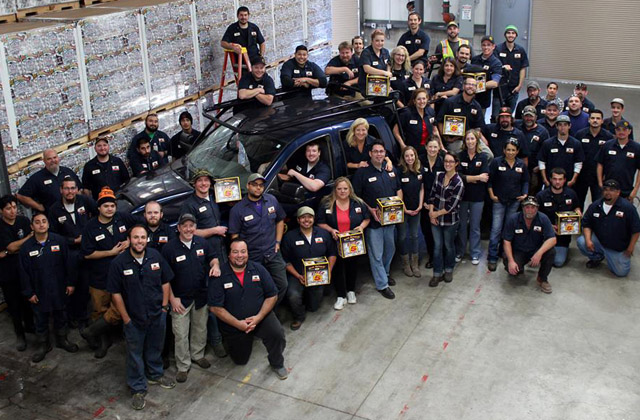
Watson Wheeler Cider is founded by four equal partners who share responsibilities in nearly every aspect of the business. With just one full-time employee, the company is looking at laying the groundwork for how it will approach hiring, retention, and company culture as it grows.
For others looking to refine their hiring and retention strategies, Watson Wheeler’s approach offers some valuable lessons. It starts by fostering a strong company culture, prioritizing communication, and setting clear expectations, which co-founder and cider maker, Bleecker Wheeler shared with Brewer that they are building a foundation for sustainable growth and a dedicated team committed to the craft.
Defining clear roles has been essential for ensuring both the owners and their employees understand expectations.
“We all wear a lot of hats,” Wheeler said. “We now have one full-time employee and he is fantastic: eager to learn; cares about the quality of our product; and is excited about the future of this thing that we’re building together.”
While their single employee currently wears many hats to help the operation along, Wheeler said he also knows which decisions rest with the owners and where he has the autonomy to contribute.
“We do our best to empower him by relinquishing control of certain things, such as one of our blends this year that he exclusively sourced the foraged apples for,” he said. “In doing so, he has taken a lot of pride in his contributions, and going forward we believe that he sees what we also see, which would be a senior position in the company when we are finally prepared to hire the next newbies.”
Company culture is another key priority for Watson Wheeler. The owners have worked in both positive and toxic work environments, making them acutely aware of the impact culture has on motivation and retention.
“We fully understand that a happy employee is someone who shows up excited and eager to contribute, whereas an under-appreciated employee shows up feeling dejected, checked out, and eager to move on to the next job,” Wheeler said. “We constantly check in with our guy regarding his schedule and needs, our own, and making sure that he’s getting what he’s in a good place.”
They strive to create an atmosphere where employees feel valued and supported. Providing lunch and paying for the break time is one way they demonstrate care. These small gestures reinforce a sense of belonging, making employees more likely to stay committed to the company’s goals.
“It’s not a monumental offering, but it certainly demonstrates that we care, and an employee who knows that his employer cares about them is always happier and a person who is more likely to stick around to get the job done rather than clock out right at 5 p.m. when there’s still 15-20 more minutes of work to do.”
When it comes to hiring, Watson Wheeler has relied on organic, community-driven recruiting. Their first employee came to them through a local connection — his father was a municipal worker who helped the cidery locate historic orchards. His enthusiasm for the craft led to an invitation to assist with pressing, and over time, he became integral to the business.
“Beyond that, we have had the occasional college ‘intern’ who we have offered a stipend for along with room and board,” Wheeler said. “Some have been better than others, and it seems like a good way to do a trial run with a potential employee down the line.”
READ MORE: Expert Business Plan Tips
Measuring employee performance at Watson Wheeler starts with communication.
“Some people might say punctuality, or efficiency, or positivity, and those are important too,” Wheeler said. “But at the end of the day, communication comes first, because we are all human and we need to be heard. If we’re not listening to them, or they’re feeling unheard by us, then the system is already broken.”
If performance concerns do emerge, Wheeler said he believes in addressing them through constructive communication. Many workplace issues stem from a lack of clear expectations, so they emphasize providing employees with the feedback and tools they need to improve. Rather than placing blame, they focus on ensuring employees have the knowledge and support required to succeed.
Although Watson Wheeler has not yet faced a situation requiring termination, Wheeler said the owners have a clear philosophy on handling it should the need arise.
“If we feel like we’ve done everything we could to make a relationship work, and despite the feedback and positive reinforcement, someone simply wasn’t able to perform or find common ground, then essentially we simply need to break up with them,” he said. “This isn’t working for us and from our perspective we don’t think it’s working for you, so it’s time to move on.”






